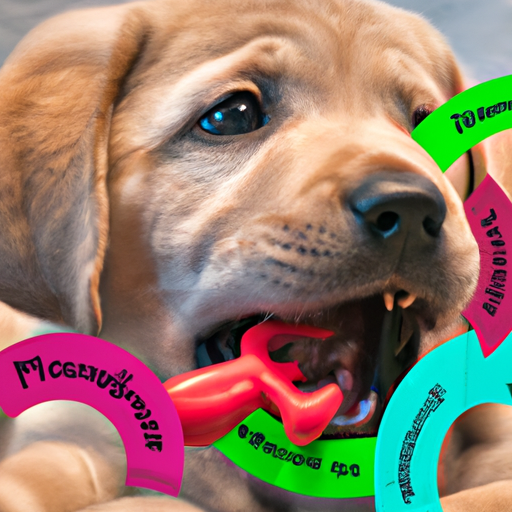Teething is a rite of passage for all puppies. It’s a time of discomfort, growth, and exploration. Understanding this process can help you as a caregiver to better support your furry friend during this phase. This article will provide an in-depth look at when dogs are done teething, what to expect during this process, and how you can help your pup through it.
- Understanding Puppy Teething
- When Do Dogs Finish Teething?
- Signs That Your Dog is Teething
- How to Help Your Teething Puppy
- FAQs
Key Takeaways:
- Puppies begin to teeth at three weeks old and usually finish by six months.
- Common signs of teething include excessive chewing, drooling, and changes in behavior.
- There are a variety of ways to help your puppy through the teething process, including providing chew toys, feeding them cold food, and maintaining regular check-ups with your vet.
Understanding Puppy Teething
Teething is a crucial phase in a puppy’s life. It’s during this time that puppies lose their baby teeth, and their new adult teeth start to grow in. This process usually begins when puppies are around three weeks old and can last until they are six months old.
During teething, puppies will have a total of 28 baby teeth that will eventually be replaced by 42 adult teeth. This process can be uncomfortable for your pup, and they may exhibit signs of discomfort or changes in behavior. To get a deeper understanding of this subject you can check this comprehensive guide on puppy teething.
When Do Dogs Finish Teething?
Dogs usually finish teething when they are about six months old. However, this can vary depending on the breed and individual dog. Smaller breeds generally finish teething earlier than larger breeds.
Below is an estimated timeline of the puppy teething process:
- 3 to 4 weeks: Baby teeth start to come in
- 4 to 6 weeks: All baby teeth are in
- 12 to 16 weeks: Baby teeth start to fall out and adult teeth begin to come in
- 6 months: Most dogs should have all of their adult teeth
While this timeline is a general guideline, it’s always best to consult with your vet if you have any concerns about your puppy’s teething process. For a more detailed outlook on dog’s growth and development stages, you can read this article.
Signs That Your Dog is Teething
Teething can be a difficult time for your puppy. Here are some common signs to look out for:
- Excessive chewing: Puppies will chew on anything they can get their paws on. This is their way of alleviating the discomfort they feel from their new teeth coming in.
- Drooling: Teething can cause your puppy to drool more than usual.
- Changes in behavior: Your puppy may become more irritable or anxious during this time.
- Loss of appetite: The discomfort caused by teething can sometimes lead to a loss of appetite.
If you notice these signs, it’s important to remember that they are a normal part of the teething process. However, if these symptoms persist, it’s a good idea to consult with your vet. Check out this guide for more information on dog health and symptoms to look out for.
How to Help Your Teething Puppy
Teething can be an uncomfortable time for your puppy, but there are ways to help them through it. Here are some tips:
- Provide chew toys: Chew toys can help alleviate the discomfort your puppy may be feeling. They also prevent your puppy from chewing on furniture or other items in your home.
- Feed your puppy cold food: Cold food can help soothe your puppy’s sore gums. You can try freezing their regular wet food, or giving them chilled treats.
- Regular vet check-ups: Regular check-ups with your vet will ensure that your puppy’s teeth are coming in correctly and that they are not experiencing any other health issues.
Remember, it’s crucial to be patient with your pup during this time. They are going through a lot of changes and need your support. Navigate here for a more comprehensive puppy care guide.
FAQs
Q1: When do puppies start teething?
A1: Puppies usually start teething when they are around three weeks old.
Q2: When do dogs finish teething?
A2: Most dogs finish teething when they are around six months old, but this can vary depending on the breed and individual dog.
Q3: How can I help my teething puppy?
A3: There are several ways to help your teething puppy, including providing chew toys, feeding them cold food, and maintaining regular vet check-ups.
In conclusion, understanding your puppy’s teething process is crucial in providing them the best care possible. Always remember to be patient and consult with your vet if you have any concerns. With your help, your puppy will have a healthy and happy teething experience.



